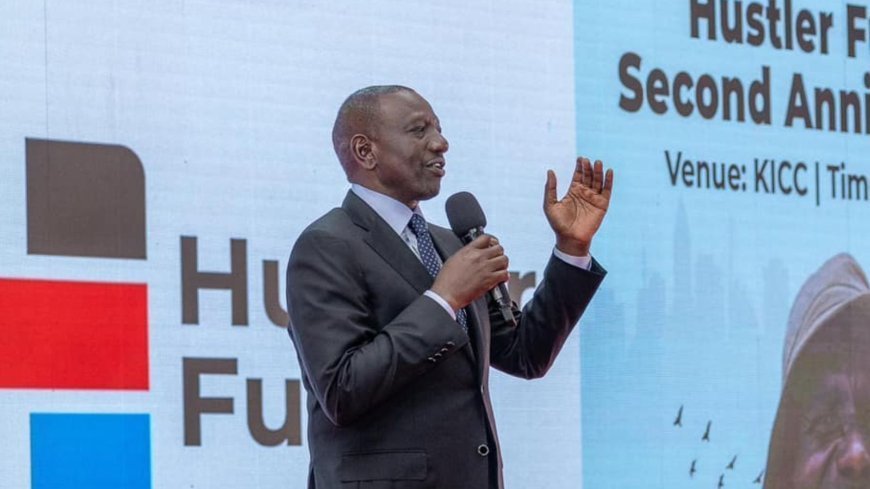Fresh Calls For Hustler Fund To Be Scrapped
It recommends the immediate scrapping of the programme, warning that continued public investment in the fund amounts to throwing good money after bad.

The Kenya Human Rights Commission (KHRC) has issued a scathing indictment of the Hustler Fund, branding it a politically expedient but economically unsustainable initiative that has failed to deliver on its promise of financial empowerment for low-income Kenyans.
A report released by the commission on Monday, August 4 titled "Failing the Hustlers" argues that the fund is structurally flawed, fiscally reckless, and riddled with governance gaps.
It recommends the immediate scrapping of the programme, warning that continued public investment in the fund amounts to throwing good money after bad.
Launched in November 2022 with a seed capital of Ksh50 billion, the Hustler Fund was marketed as a flagship pillar of the Kenya Kwanza administration’s "bottom-up" economic transformation agenda.

It was intended to provide affordable and accessible credit to underserved groups—particularly those in agriculture, MSMEs, healthcare, housing, and the creative industries.
However, according to KHRC, the initiative has not only fallen short of its objectives but has also exacerbated financial hardship among its target beneficiaries. By September 2024, more than Ksh53 billion had been disbursed. But the KHRC found no evidence of meaningful enterprise development or job creation attributable to the programme.
Loan amounts—typically ranging between Ksh500 and Ksh1,000 for first-time borrowers—were deemed too small to support viable business activity. Moreover, the mandatory 14-day repayment window was labelled “unrealistic,” particularly for informal sector borrowers.
The report also criticises the fund’s operational model, saying it traps borrowers in a revolving cycle of debt. A compulsory five percent deduction from each loan for savings further reduces the funds available to borrowers. Additionally, clients must borrow repeatedly to qualify for higher limits, which KHRC warns is both unsustainable and financially harmful.
Performance metrics cited in the report paint a grim picture. By the end of 2022, the fund’s default rate had reached 68.3 percent.
The Commission estimates that for every KSh500 disbursed, at least Ksh340 is unrecovered. Factoring in the average Treasury bill rate of 8.2 percent (as of December 2022) and a legally mandated three percent administrative cost, the projected total cost to taxpayers rises to 71.5 percent.
“This is not financial empowerment. It is a loss-making scheme disguised as progress,” the KHRC said in the report. “Quick money has become dead money.”
KHRC further highlighted serious accountability and transparency concerns. The Office of the Auditor General, it said, was unable to conduct a complete audit of the fund due to missing records and unexplained transactions.
In addition, the fund was rolled out without the legally required oversight board—only formed after litigation compelled the government to act.
The report criticises the lack of publicly available data on regional disbursements, loan performance, and allocation criteria. According to KHRC, this lack of transparency fuels public mistrust and opens the door to political misuse.
“There is a growing perception that the Fund is a political reward for voting, and therefore repayment is optional,” the report warns. “This perception threatens the Fund’s credibility and undermines public accountability.”
While some policymakers have suggested reforming the fund, the KHRC is unequivocal in its assessment: the structural, legal, and political deficiencies are beyond repair.
“The evidence leads to a singular and inescapable conclusion that the Hustler Fund has failed and should be scrapped,” the report states.







